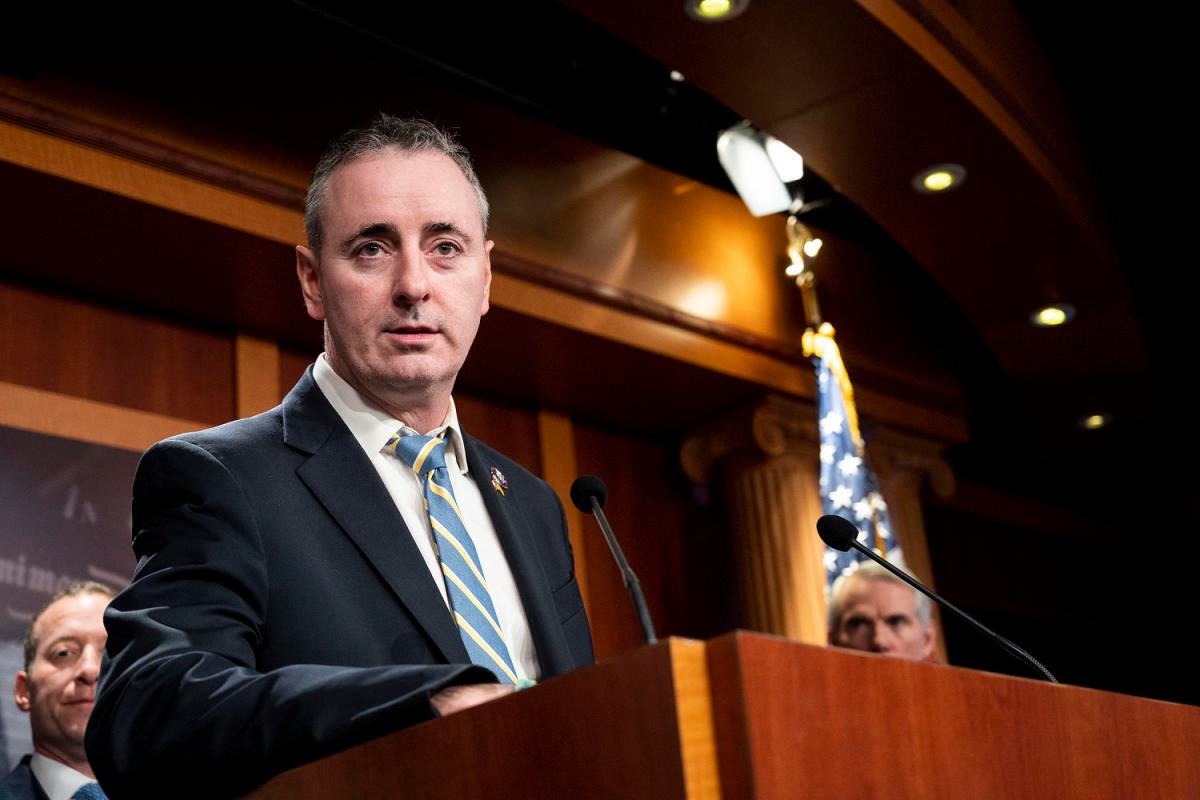Centrist House Republican lawmakers are set to unveil a bipartisan proposal following Speaker Mike Johnson’s rejection of a Senate-passed national security package. This new proposal will focus on new border policies and critical military aid for Ukraine, Israel, and Taiwan.
Rep. Brian Fitzpatrick, R-Pa., praised the legislation, calling it a “really good piece of legislation” that is “pared-down” and “airtight.” The bipartisan package will initially have eight co-sponsors, with an equal split between Democrats and Republicans. Republican backers include Reps.
Don Bacon of Nebraska, Mike Lawler of New York, and Lori Michelle Chavez-DeRemer of Oregon. On the Democratic side, there are Reps. Jared Golden of Maine, Ed Case of Hawaii, Marie Gluesenkamp Pérez of Washington, and Jim Costa of California.

The package incorporates language from the House GOP’s tough border bill, H.R. 2, particularly regarding the “Remain in Mexico” policy for asylum-seekers.
Fitzpatrick emphasized that the legislation is not a product of the Problem Solvers Caucus, which he co-chairs, but rather a collaborative effort with Bacon.
Bacon explained that the bill focuses on military aid to Ukraine, Taiwan, and Israel, along with the “Remain in Mexico” policy using wording from H.R. 2.
While reinstating this policy would require cooperation from Mexico, which has rejected it, the lawmakers are optimistic about finding a solution.
Fitzpatrick stated that they are still refining the language on the immigration side of the bill and added that it would be the Biden administration’s responsibility to ensure Mexico’s compliance.
Regarding the bill’s future, Fitzpatrick said he does not have a commitment from Johnson to bring the bill to the floor but is willing to do “whatever it takes” to advance it.
However, Rep. Marjorie Taylor Greene, R-Ga., indicated that the moderates’ bill might face challenges, particularly concerning Ukraine aid.
Unlike the Senate package, the House bill focuses solely on military aid and does not include humanitarian aid for areas affected by war. Fitzpatrick mentioned that lawmakers are free to propose amendments to address this issue during the legislative process.


